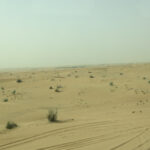Mounting evidence indicates that exposure to inorganic dust is a risk factor for the development of autoimmune diseases. According to a recent study, dust exposure during military service in dusty environments represents an occupational and environmental risk and was associated with a 10% increased risk of developing RA.


